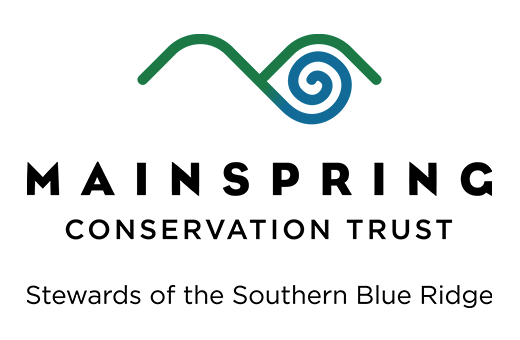The Land Trust for the Little Tennessee (LTLT) and Little Tennessee Watershed Association (LTWA), two non-profit conservation organizations based in Franklin, North Carolina, are joining forces to build the future capacity for land and water conservation in the heart of the southern Blue Ridge Mountains. On January 1st LTWA formally merged with LTLT bringing its long history of water quality monitoring, citizen science, stream restoration, and advocacy for protecting water resources to LTLT’s 15-year record of successful land protection, habitat restoration, and cultural landscape conservation, including farmland and historic preservation.
The merged organization enters 2012 with the combined support from over 500 members, a combined staff of ten and with a broader mission of land and water conservation across western North Carolina and northern Georgia (Rabun County). The organization will continue to operate under the legal status and name of LTLT, but expects to select a new name reflecting the broadened work of the organization sometime in 2012.
Paul Carlson, LTLT Executive Director as well as an original founder of LTWA, will lead the merged organization. Jenny Sanders, LTWA Executive Director, will remain with the organization during the transition but has decided to pursue other interests in the coming year.
“This merger will strengthen the place-based model for land and water conservation which took root in the Little Tennessee in the early 1990’s,” said Paul Carlson. “The upper Little Tennessee River valley is widely recognized as one of modern America’s great conservation success stories where residents and local governments have worked together to protect their clean water and conserve their rural lands, and we look forward to extending our area of impact. This story is one of the great legacies of our watershed/land trust partnership over the past 15 years.”
“The combination of LTWA with LTLT is an opportunity to move forward a greater vision and create an organization that is dynamic and well positioned to better address the conservation challenges of our region,” states Jenny Sanders. “My decision to leave after the transition is a difficult one but I am satisfied with all that I have accomplished in the nearly five years I have been with LTWA and am happy to see the organization that I nurtured grow into something much bigger alongside LTLT. I am confident in the combined talents of my colleagues to carry forward and grow the good work of both organizations as one combined entity.”
LTWA, the first watershed association founded in the southern Blue Ridge, incorporated in 1995 with the mission to conserve the water quality and habitat of the Little Tennessee River and its tributaries upstream of Fontana Reservoir. LTLT was organized two years later with a land conservation and habitat restoration mission, and over the following decade it expanded its project area to cover the six counties of western NC plus northern Rabun County, GA helping to conserve over 21,000 acres. The two organizations have a long history of working together on major initiatives, including the conservation of the 4500-acre Needmore Tract as well as a streambank restoration project (in partnership with Macon County’s Soil and Water Conservation District) which has impacted over 25 miles of streambanks since 1997.
“The merger of LTWA with LTLT is a natural progression for conservation in this valley”, said Dr. William O. McLarney, who together with Carlson was an original founder of both organizations. Beginning in the early 1990’s McLarney established a volunteer-based biomonitoring program of aquatic health of the Little Tennessee River and its tributaries which is widely regarded as amongst the most successful in the nation. Thanks to this program a generation of Macon County students has grown up with the values of healthy streams and clean water. McLarney further stated that “LTLT and LTWA have highly complementary programs and solid reputations to promote sensible, community-based conservation based upon sound science and respect for rural values.”
Founding LTLT Board member Dick Heywood, who has also served on the LTWA Board during the past four years points out that the combined organization will gain administrative and financial efficiencies beyond what was possible as two separate entities. “In 2010 LTLT gained national accreditation showing it meets national quality standards of excellence with its internal systems of governance, finance, and conservation programs to ensure the permanence of its conservation work. The combined organization will thus have much greater capacity to expand its conservation impact, both through programs run directly as well as by working closely with partner organizations including other watershed groups in our region.”
Each organization has received the North Carolina Governor’s Award for outstanding conservation work: LTWA in 1994 for its citizen-based stream monitoring program and LTLT in 2002 for its leadership in conserving the Needmore Tract.

